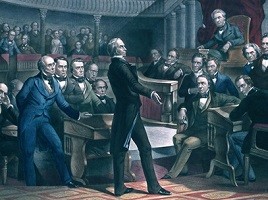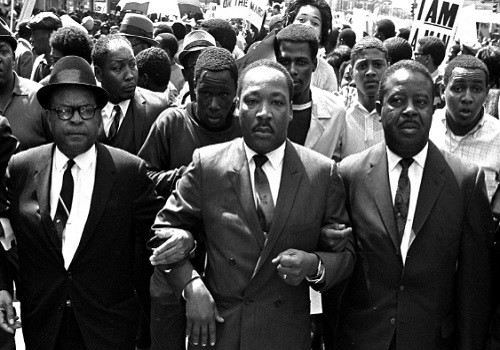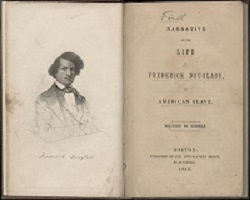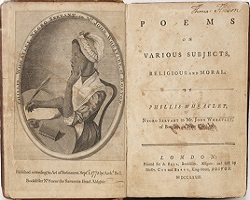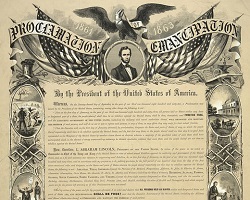Letter by Thomas Garrett
In this letter famous abolitionist Thomas Garrett describes how Harriet Tubman became known to him and how she helped slaves escape. Source: Scenes in the Life of Harriet Tubman by Sarah Hopkins Bradford.
WILMINGTON, 6th Mo., 1868.
MY FRIEND:
Thy favor of the 12th reached me yesterday, requesting such reminiscences as I could give respecting the remarkable labors of Harriet Tubman, in aiding her colored friends from bondage. I may begin by saying, living as I have in a slave State, and the laws being very severe where any proof could be made of any one aiding slaves on their way to freedom, I have not felt at liberty to keep any written word of Harriet’s or my own labors, except in numbering those whom I have aided. For that reason I cannot furnish so interesting an account of Harriet’s labors as I otherwise could, and now would be glad to do; for in truth I never met with any person, of any color, who had more confidence in the voice of God, as spoken direct to her soul. She has frequently told me that she talked with God, and he talked with her every day of her life, and she has declared to me that she felt no more fear of being arrested by her former master, or any other person, when in his immediate neighborhood, than she did in the State of New York, or Canada, for she said she never ventured only where God sent her, and her faith in a Supreme Power truly was great.
I have now been confined to my room with indisposition more than four weeks, and cannot sit to write much; but I feel so much interested in Harriet that I will try to give some of the most remarkable incidents that now present themselves to my mind.
The date of the commencement of her labors, I cannot certainly give; but I think it must have been about 1845; from that time till 1860, I think she must have brought from the neighborhood where she had been held as a slave, from 60 to 80 persons, from Maryland, some 80 miles from here. No slave who placed himself under her care, was ever arrested that I have heard of; she mostly had her regular stopping places on her route; but in one instance, when she had two stout men with her, some 30 miles below here, she said that God told her to stop, which she did; and then asked him what she must do.
He told her to leave the road, and turn to the left; she obeyed, and soon came to a small stream of tide water; there was no boat, no bridge; she again inquired of her Guide what she was to do. She was told to go through. It was cold, in the month of March; but having confidence in her Guide, she went in; the water came up to her arm-pits; the men refused to follow till they saw her safe on the opposite shore. They then followed, and if I mistake not, she had soon to wade a second stream; soon after which she came to a cabin of colored people, who took them all in, put them to bed, and dried their clothes, ready to proceed next night on their journey.
Harriet had run out of money, and gave them some of her underclothing to pay for their kindness. When she called on me two days after, she was so hoarse she could hardly speak, and was also suffering with violent toothache. The strange part of the story we found to be, that the master of these two men had put up the previous day, at the railroad station near where she left, an advertisement for them, offering a large reward for their apprehension; but they made a safe exit.
She at one time brought as many as seven or eight, several of whom were women and children. She was well known here in Chester County and Philadelphia, and respected by all true abolitionists. I had been in the habit of furnishing her and those that accompanied her, as she returned from her acts of mercy, with new shoes; and on one occasion when I had not seen her for three months, she came into my store.
I said, “Harriet, I am glad to see thee! I suppose thee wants a pair of new shoes.” Her reply was “I want more than that.” I, in jest, said, “I have always been liberal with thee, and wish to be; but I am not rich, and cannot afford to give much.” Her reply was: “God tells me you have money for me.” I asked her “if God never deceived her?” She said, “No!” “Well! how much does thee want?” After studying a moment, she said: “About twenty-three dollars.”
I then gave her twenty-four dollars and some odd cents, the net proceeds of five pounds sterling, received through Eliza Wigham, of Scotland, for her. I had given some accounts of Harriet’s labor to the Anti-Slavery Society of Edinburgh, of which Eliza Wigham was Secretary. On the reading of my letter, a gentleman present said he would send Harriet four pounds if he knew of any way to get it to her. Eliza Wigham offered to forward it to me for her, and that was the first money ever received by me for her.
Some twelve months after, she called on me again, and said that God told her I had some money for her, but not so much as before. I had, a few days previous, received the net proceeds of one pound ten shillings from Europe for her. To say the least, there was something remarkable in these facts, whether clairvoyance, or the divine impression on her mind from the source of all power, I cannot tell; but certain it was she had a guide within herself other than the written word, for she never had any education.
She brought away her aged parents in a singular manner. They started with an old horse, fitted out in primitive style with a straw collar, a pair of old chaise wheels, with a board on the axle to sit on, another board swung with ropes, fastened to the axle, to rest their feet on. She got her parents, who were both slaves belonging to different masters, on this rude vehicle to the railroad, put them in the cars, turned Jehu herself, and drove to town in a style that no human being ever did before or since; but she was happy at having arrived safe.
Next day, I furnished her with money to take them all to Canada. I afterwards sold their horse, and sent them the balance of the proceeds. I believe that Harriet succeeded in freeing all her relatives but one sister and her three children.
Etc., etc. Thy friend,
THOS. GARRETT.
Category: Later Years and Death

